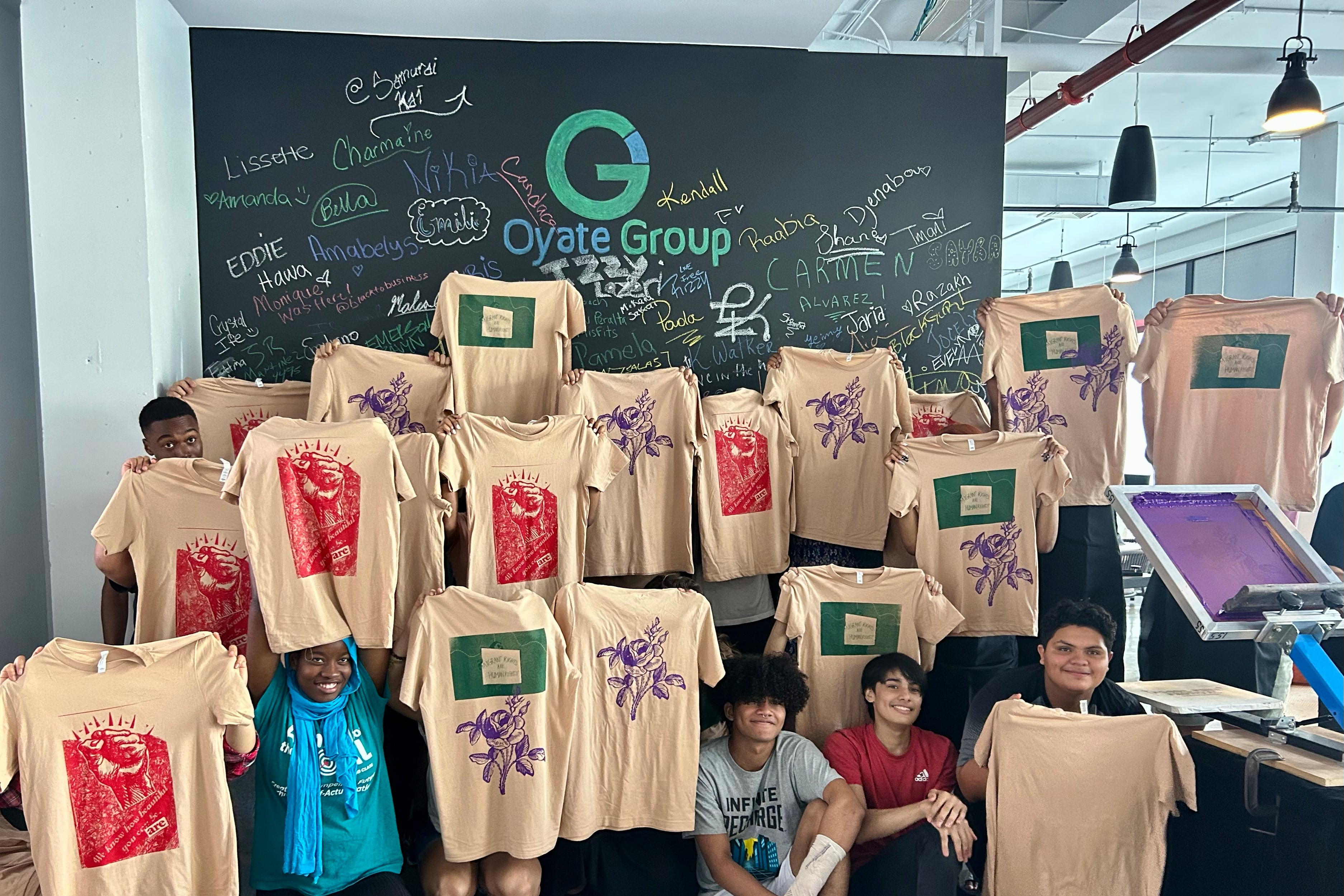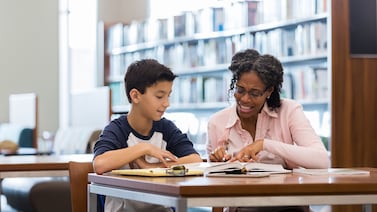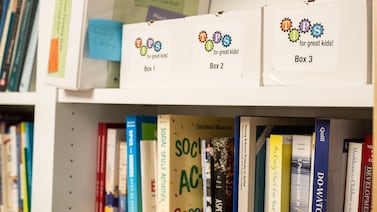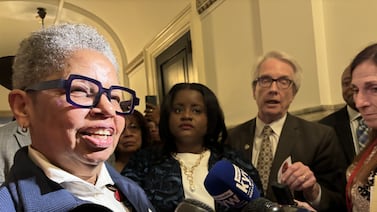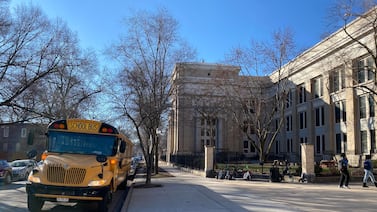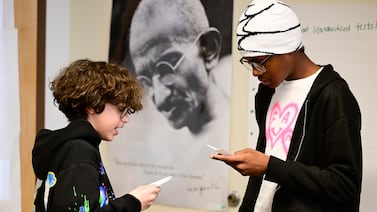Like many 17-year-olds, Beatriz spent the last year searching for an internship.
Unlike many of them, her immigration status made getting one nearly impossible.
Without a social security number, most internships were out of reach. Beatriz learned about one through a recruiter visiting her high school, but she was too scared to tell the recruiter why she never submitted the application. (Because of Beatriz’s undocumented status, we are not disclosing her last name.)
“I felt so misunderstood,” Beatriz said. “I could tell when the woman came back she thought I just didn’t care.”
Beatriz eventually found an internship elsewhere: She was among 40 undocumented students participating in Beyond Rising, an internship initiative created by Oyate Group, an anti-poverty nonprofit focused on access to health care, food security, and providing resources to undocumented students.
Beyond Rising has nearly doubled its internship class since it opened in 2022 with 22 students, but the needs remain great. There are at least 11,000 undocumented teenagers enrolled in NYC public schools, according to the organization.
While New York City’s Summer Youth Employment Program, or SYEP, had 100,000 spots, none were open to undocumented students. Beyond Rising’s mission is to offer undocumented students career readiness resources above and beyond the ones available to documented New York City students.
The five-week paid internship places undocumented youth in administrative offices at Fordham University and Lehman College four days a week. On Fridays, students head back to Beyond Rising’s Bronx headquarters where they participate in mentoring meetings, skills training, and resume preparation. They also take field trips, such as visiting the Museum of The City of New York’s exhibit, “This Is New York - 100 Years of the City in Art and Pop Culture.”
Arefin, another intern this year, and Beatriz have been placed at Fordham where they’re working on a project called Her Migrant Hub, created by Fordham faculty, students, and female asylum seekers.
The work that many of the students have been doing this summer with the colleges is often connected to their own experiences and has given them opportunities to share what they’ve learned navigating the city as undocumented immigrants.
With the help of Fordham faculty and students, female asylum seekers developed a website that helps other female asylum seekers access health care and other social services regardless of their immigration status. Most importantly, they’re able to do all of this anonymously which keeps them safe since knowledge of their immigration status could have them deported.
From the work with Her Migrant Hub, Beatriz, and Arefin realized a specific community of young people weren’t being targeted: unaccompanied minors. Now, with the use of resources from Her Migrant Hub, they’re creating a pamphlet for unaccompanied minors — children who come to the United States without their parents or guardians. The handout covers basic “know your rights” information and includes a list of organizations and resources for newly arrived unaccompanied minors.
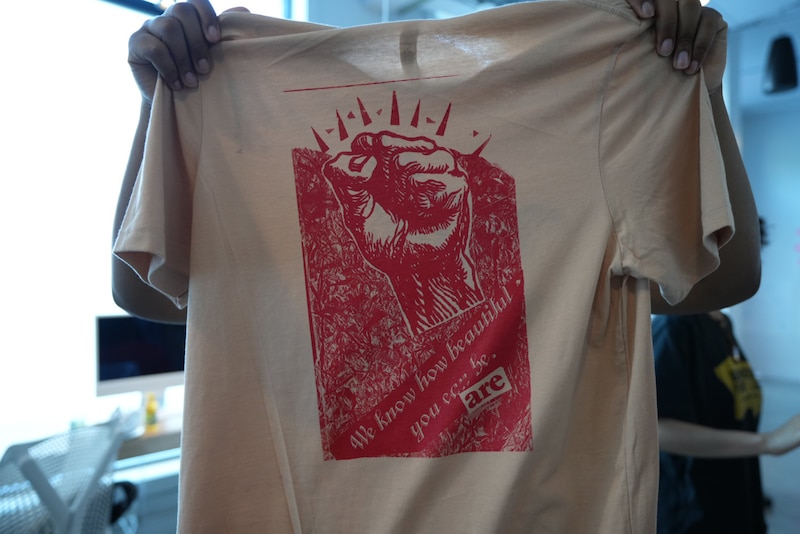
“When we were designing the pamphlets and thinking about what resources to add, we kept asking ourselves, “What would I have benefited from that I never received?” said Beatriz.
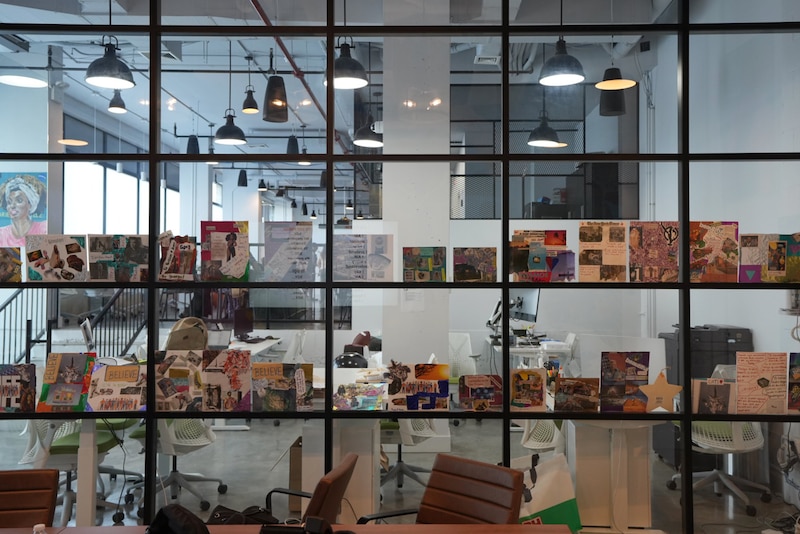
Beyond Rising focuses on challenges faced by undocumented students
Beyond Rising aims to address common problems faced by undocumented students, such as not having access to a bank account, language barriers, and financial challenges.
Students are paid $2,500 over the course of their internship through a weekly stipend of $500 loaded onto a prepaid credit card. (The city’s Summer Youth Employment Programs runs a program called Pathways for students who face enrollment obstacles, such as not having social security numbers. The program aimed to reach 750 students this year with a stipend of about $500 for 60 hours of work.)
Jason Autar, Oyate Group’s chief operating officer, said that the choice to use a prepaid debit card for the students had a twofold mission: to keep students from carrying around $500 in cash, which could create unsafe situations, and to allow them direct access to their stipends.
For Arefin, the money will allow him to purchase a computer, a tool he’s hoping will simplify the college application challenges he’s going to face as an undocumented student. Having his own computer will keep him from having to share with his mother and siblings.
“I watched my brother struggle with applying for college and getting scholarships because of his status, so I know it’s going to be hard,” he said.
Beyond Rising has also hired employees who are able to empathize and provide solutions based on their own migrant experiences.
Alexander Reyes, Beyond Rising’s program coordinator, said the organization intentionally designed its application to be simple for students who might already be discouraged by poor grades, difficulties with English fluency, and involved applications. The application is short, it does not ask for a transcript, and students don’t have to submit letters of recommendation.
“This group of students may have the age but they don’t have the language, for us it’s about providing the access to meet them where they’re at based on their needs,” he said.
Arefin said knowing that the application didn’t require a transcript made him feel more confident.
Beyond Rising is open to students ages 16-20. That’s because some newly arrived students might be 19 but still in the 11th grade, said Reyes.
Augustina Wharton, the director of programs, said she went through all 312 applications for this year’s cohort.
“Every student was qualified enough, but we just didn’t have the resources to take them all,” she said. Bronx students were prioritized because of the organization’s ties to the community, she said.
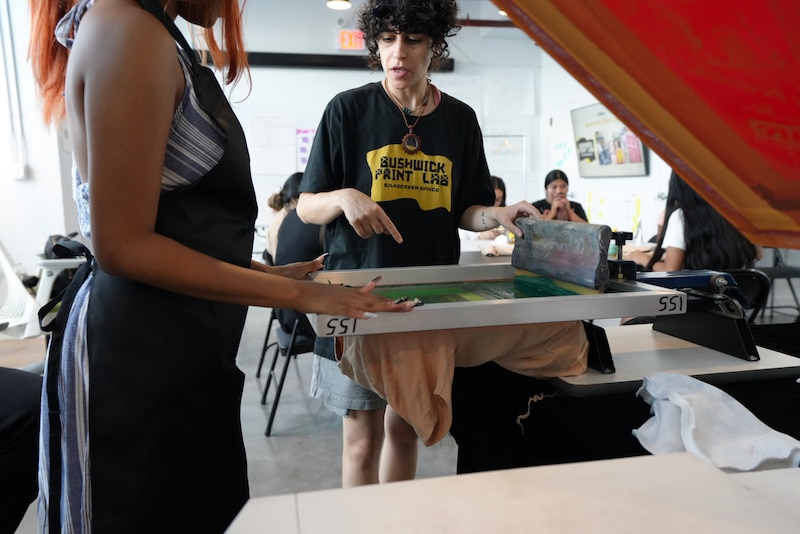
Building community among students often living in shadows
The organization prides itself on creating a sense of community within its walls. On Fridays, students meet back at Beyond Rising’s Bronx headquarters where the students can be “just young people who want to dance and make art and explore architecture and engineering like any other students,” Wharton said.
On a recent Friday, students streamed into the office as Reyes prepared a breakfast of warm bacon, egg, and cheese sandwiches, while Bushwick Print Lab prepared for the day’s activity: learning to screen print on T-shirts.
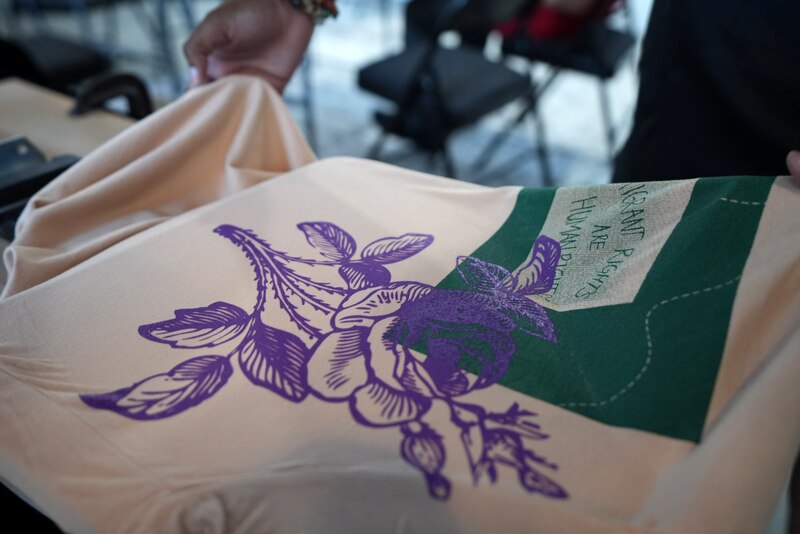
One student chose to layer a “Migrant Rights Are Human Rights” stencil on top of a bundle of flowers stencil to show how so much life had grown from an identity she was meant to fear.
Beatriz said that in 2017, during the Trump administration, she and her family feared for their safety and security like never before. As the oldest sibling, knowing her rights became more important.
She wanted to participate in this internship to share knowledge with her community about their rights as undocumented people.
“I’m learning about my own rights every day by being in this internship and that’s helping me help my community,” said Beatriz.
Eliana Perozo is a reporting intern at Chalkbeat New York. You can reach her at eperozo@chalkbeat.org.


